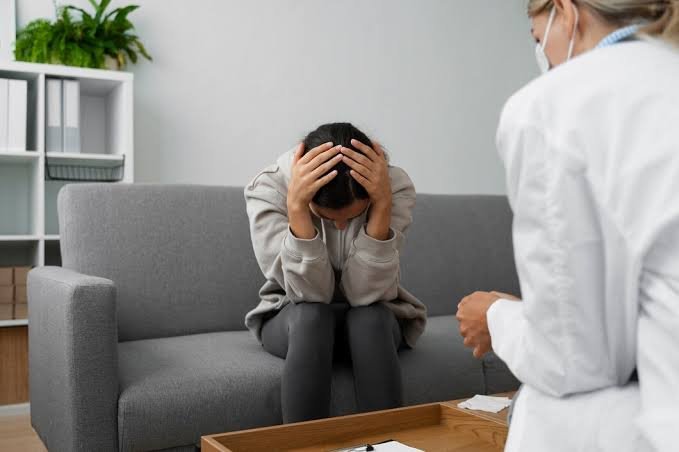Anxiety is one of the most common mental health challenges in the world today. From constant worrying and restlessness to panic attacks and physical symptoms like a racing heart, anxiety can affect every aspect of daily life.
While occasional anxiety is normal, persistent and overwhelming anxiety can interfere with relationships, work, and overall well-being.
Many people wonder whether psychotherapy is truly effective for treating anxiety—and the short answer is yes. Psychotherapy, when guided by a trained professional, can significantly reduce symptoms of anxiety and help individuals regain control of their lives.
Why Psychotherapy Works for Anxiety
Psychotherapy, often called “talk therapy,” focuses on identifying and addressing the root causes of mental distress rather than just masking symptoms.
Unlike medication, which can be effective for managing anxiety but primarily targets symptoms, psychotherapy aims to create long-lasting change by reshaping thought patterns, emotional responses, and behaviors.
Through regular sessions with a psychologist, therapist, or counsellor, individuals can:
- Understand the triggers that fuel their anxiety.
- Learn healthier coping strategies.
- Develop problem-solving and stress management skills.
- Gain a deeper sense of self-awareness and confidence.
This process allows people not only to reduce current anxiety but also to build resilience against future stressors.
Types of Psychotherapy Used for Anxiety
Several approaches have proven highly effective in treating anxiety disorders. The choice of psychotherapy for anxiety often depends on the individual’s needs, preferences, and the severity of symptoms.
- Cognitive Behavioral Therapy (CBT)
CBT is considered the gold standard for treating anxiety. It focuses on identifying negative thought patterns (like “I can’t handle this situation”) and replacing them with more realistic and balanced thoughts. CBT also uses behavioral techniques, such as gradually facing feared situations, to reduce avoidance and fear.
- Exposure Therapy
Often used as part of CBT, exposure therapy helps individuals gradually confront the things they fear in a safe and controlled environment. Over time, this reduces the intensity of anxiety and helps people regain confidence in handling anxiety-provoking situations.
- Mindfulness-Based Therapy
Anxiety often involves worrying about the future or ruminating about the past. Mindfulness-based therapy teaches individuals to stay grounded in the present moment, reducing overthinking and calming the mind.
- Acceptance and Commitment Therapy (ACT)
ACT helps people accept anxious thoughts without being controlled by them. Instead of trying to eliminate all anxiety, individuals learn to focus on their values and take meaningful actions even in the presence of anxious feelings.
- Psychodynamic Therapy
This approach looks at unresolved conflicts or experiences from the past that may be contributing to current anxiety. By increasing self-awareness, individuals can better understand the roots of their anxiety and work toward long-term healing.
How Psychotherapy Helps in Daily Life
The effectiveness of psychotherapy goes beyond reducing anxious thoughts—it equips individuals with practical tools that improve day-to-day functioning. Some of these include:
- Stress Management Skills: Learning relaxation techniques, breathing exercises, and grounding strategies to calm the body and mind.
- Improved Relationships: Reducing anxiety can make communication easier and help individuals feel more connected to others.
- Problem-Solving Skills: Therapy encourages breaking down overwhelming problems into smaller, manageable steps.
- Healthier Lifestyle Choices: Reduced anxiety often leads to better sleep, improved focus, and more motivation to engage in positive habits.
When to See a Psychologist for Anxiety
While self-help techniques can be useful, persistent or severe anxiety often requires professional support. A psychologist or licensed therapist can provide tailored guidance, create a treatment plan, and offer accountability. Visiting a psychologist is particularly important if anxiety interferes with work, relationships, or daily functioning—or if panic attacks, phobias, or obsessive thoughts become overwhelming. You can also learn about clinical supervision near me.
Therapy sessions provide a safe, nonjudgmental space to share worries and fears openly. This supportive environment often helps people feel less alone in their struggles, which itself can reduce the intensity of anxiety.
Long-Term Benefits of Psychotherapy for Anxiety
One of the greatest advantages of psychotherapy is that its benefits often extend far beyond the therapy room. While medication may stop working once discontinued, the coping skills learned in therapy remain with individuals for life. People who undergo psychotherapy often report not only lower anxiety levels but also increased self-confidence, better emotional regulation, and a stronger ability to handle stress.
Conclusion
So, is psychotherapy effective for anxiety? Yes—it is one of the most proven and reliable treatments available. By addressing the underlying thought patterns, behaviors, and emotional responses that fuel anxiety, psychotherapy empowers individuals to take control of their mental health.
Whether through CBT, mindfulness, or other therapeutic approaches, psychotherapy offers more than symptom relief—it provides long-term strategies for resilience and well-being.
For anyone struggling with anxiety, reaching out to a trained psychologist or therapist can be the first step toward lasting recovery and a calmer, more fulfilling life.
